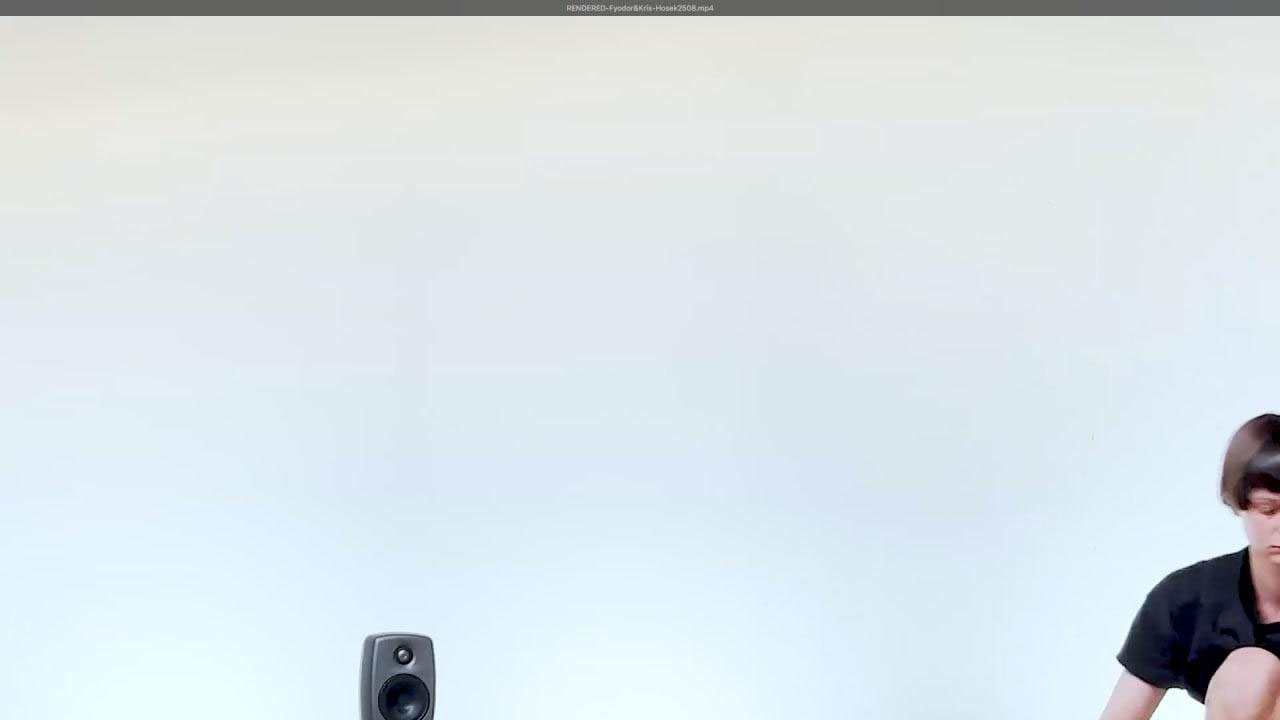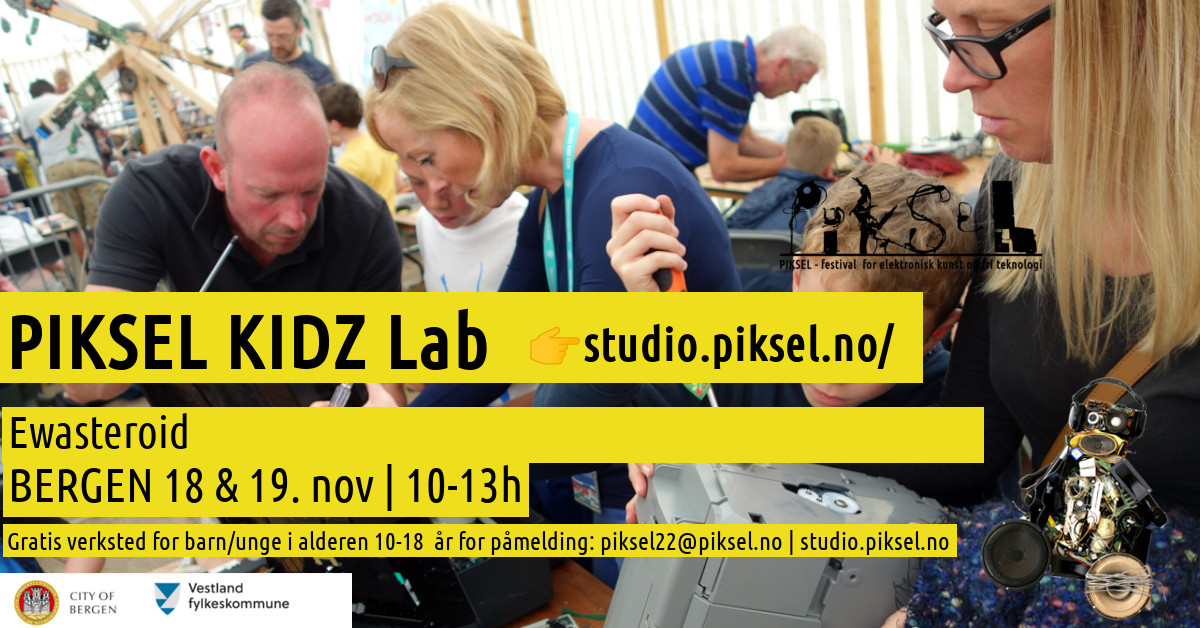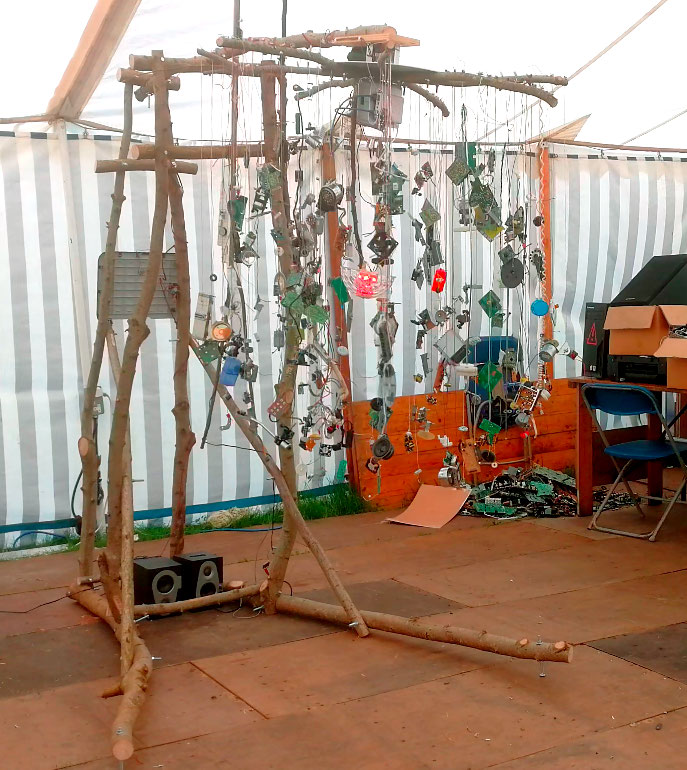Kris Kuldkepp
Lecture and workshop on sensors and motion capture in new music and
multimedia performance.
The performer’s body is classically considered secondary in presenting a
musical piece. After all, the composer’s name and the idea of self-contained
artwork are predominantly the reasons for a concert visit rather than particular
performer(s) and their performing modes. Thus, for a classically trained
musician, it presents a conflict of being essentially a practical tool in the
service of a composer rather than a creative agent. However, the research in various music performance studies has resulted in a diverse quest for the importance of musical gestures and performers’ physical movements in transmitting the meaning. Do some movements or gestures of a
performer make the music meaningful? How could one classify musical gestures? How is acousmatic music perceived? How to understand electronic music in which the sound production is decoupled from physical gesture? … These and more are the open questions that circle in musical gesture research.
The focus on the importance of musical gestures has influenced composers and performing musicians to create pieces and improvisations that experiment with motion capture and various sensors to create musical experiences. The lecture introduces the usage of sensors and motor capture systems in new music and multimedia and discusses the philosophical concepts motivating the
research.
The lecture is followed by a practical workshop for absolute beginners in Pure Data (Pd) and programming for movement sensors.It will introduce the first steps for processing the data and the necessary algorithms.
The participants should bring their personal computers and preinstall Pure Data Vanilla (https://puredata.info/downloads/pure-data) as well as external libraries “Cyclone” and “else”.
In order to install the externals, please start up Pure Data and use Pd’s own external download manager:
— go to the “Help” menu
— choose the “find externals” option under the Help menu
— search for “cyclone”.
— Then click on the link to download the “cyclone” to your computer and specify the search path. (By default it should be ~/Documents/Pd/externals).
— Do the same process with the “else” externals.
Now the external libraries are installed in your computer
In order to load the libraries at the startup:
— go to “Preferences” menu in Pd
— choose Startup”,
— then click “New”, type “cyclone” and hit OK.
— Do the same with “else” library.
— Next time you restart Pd, the libraries will be loaded and ready to use.
Also, please download this folder with sound files into your computer. We use these sound files during the workshop as examples.
https://drive.google.com/drive/folders/12znhQbAJnaXWWrMLFPtIS6CZ9h85QhPP
As sensors, we will use our smartphones, and participants should also preinstall an app PdParty (iOS) or
Sensor2OSC (Android) on their phones. A computer mouse can be used to
stimulate the data stream.
During the workshop, we will build examples in Pure Data that introduce the
first essential steps in creating music with sensors and what to do with the raw
data. No previous experience with Pure Data is required.
Kris Kuldkepp
Kris is Hamburg based free improviser performing on double bass, bass guitar, and live-electronics. She is a feminist performer and artist. Kris is currently completing doctoral studies at Hamburg University of Applied Science where she researches spatial sound, free improvised music, and posthumanism. She is an active soloist and ensemble performer and has participated in festivals such as StimmeX, Blurred Edges Festival, and Bruital Furore in Hamburg, LjudOLjud in Stockholm, Tallinn Music Week, St. Petersburg New Music Festival reMusic, Estonian Music Days, she has also been invited to collaborate in various constellations within Europe and throughout South-America.
Kris is also part of the free improvisation quartet ‘double bird’ that recently released an album ‘favourite galaxy’ and is active with the quartet EMN concentrating on performing graphic scores and performative compositions. Kris is a close collaborator of opera director Lisa Pottstock with whom she develops feminist performances focusing on finding new way of dealing with body, materiality, and sound.







